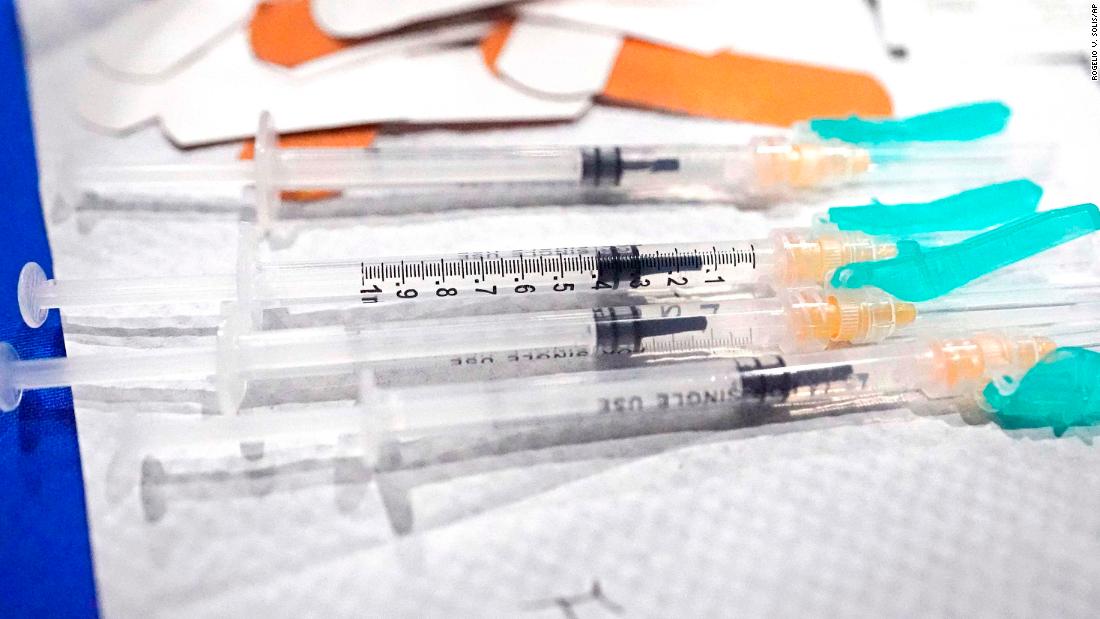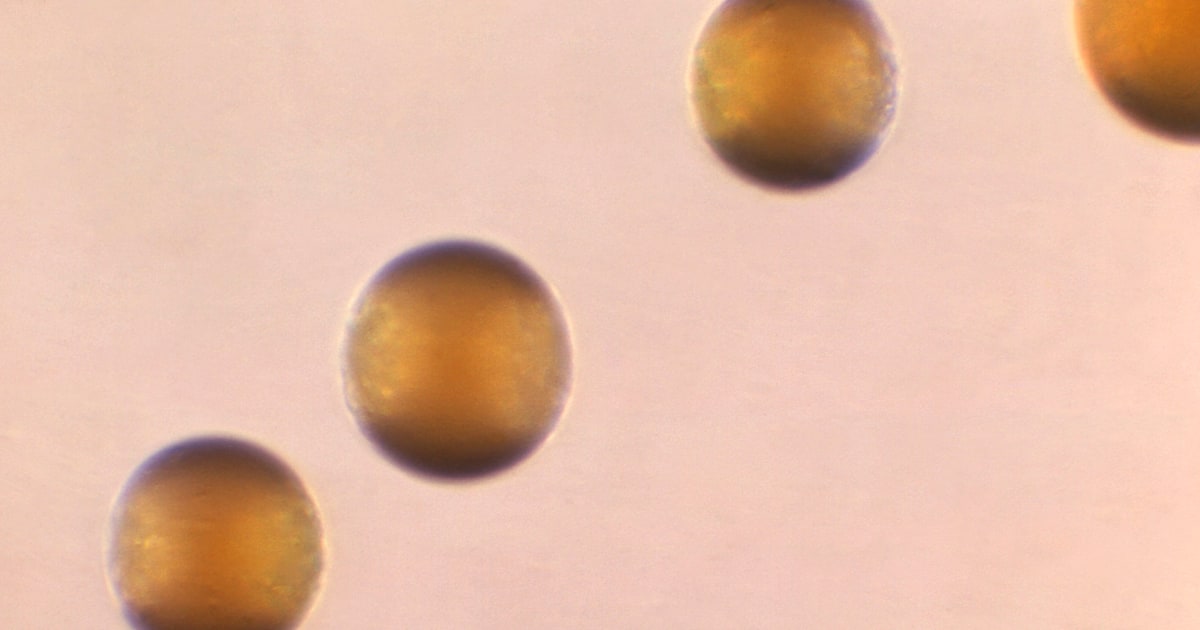WHO recommends use of first malaria vaccine 0:47
(CNN Spanish) -
After decades of research and millions of deaths from malaria, the World Health Organization (WHO) recommended the widespread use of the world's first pediatric malaria vaccine.
This is the world's only malaria vaccine for children in sub-Saharan Africa and other regions where there are moderate to high levels of malaria transmission, the WHO said.
According to Dr. Tedros Adhanom Ghebreyesus, WHO Director General, said that the development of this vaccine - which lasted more than 30 years - "changes the course of public health history" and added that while "a gift for the world ", it will be felt especially in Africa" because that is where the burden of malaria is greatest. "
For what diseases are vaccines available?
There are currently dozens of vaccines to prevent more than 20 deadly diseases, according to the WHO, which help people of all ages to live longer and in better health.
"Immunization - with vaccines - currently prevents between 2 and 3 million deaths each year from diseases such as diphtheria, tetanus, whooping cough, influenza and measles," says the WHO.
Vaccines reduce the risk of getting a disease.
These work with your body's natural defenses and generate protection against them, so when you get a vaccine, your immune system responds, preventing the disease, or, as in the case of the covid-19 vaccine, reducing the risk of death or serious illness.
advertising
There are currently 14 recommended vaccines for children ages 0 to 6, including diphtheria, pertussis, tetanus, influenza, measles and rubella vaccines, according to the CDC.
The diseases for which there are vaccines, according to the WHO, are:
Anger
Covid-19 (coronavirus)
Dengue
Diphtheria
Hepatitis
Haemophilus influenzae type b (Hib)
Human Papillomavirus (HPV)
Influenza
Japanese encephalitis
Malaria
Measles
Meningococcal meningitis
Mumps
Whooping cough
Pneumococcal disease
Poliomyelitis
Rage
Rotavirus
Rubella
Tetanus
Tick-borne encephalitis
Tuberculosis
Typhoid fever
Chickenpox
Yellow fever
What vaccines are in development?
WHO has a list of at least 14 diseases for which vaccines or monologous antibodies are being developed.
"The WHO Vaccine Product Development Advisory Committee (PDVAC) identifies priority pathogens for which WHO is actively participating to accelerate the development of vaccines and mAbs for use in low- and middle-income countries," it says. The OMS.
These diseases for which there are vaccines or treatments in development are:
Enterotoxigenic Escherichia coli
Group B streptococcus (GBS)
Herpes simplex virus
HIV-1
Neisseria gonorrhoeae
Non-typhoid Salmonella disease
Norovirus
Paratyphoid fever
Respiratory syncytial virus (RSV)
Schistosomiasis disease
Shigella Group A Streptococcus (GAS)
Tuberculosis
Improved Flu Vaccines
Why have some vaccines taken so long?
The world saw a rapid development of the vaccine against covid-19: on March 11, 2020 the WHO declared covid-19 as a global pandemic, on December 11 of that year the Pfizer vaccine was authorized for emergency use -BioNTech against covid-19.
On August 23, 2021, the FDA gave its final approval.
Unlike the vaccine against covid-19, the vaccine for HIV, a disease that was first identified in the 1980s, is still in development.
The malaria vaccine has been researched for 30 years, according to the WHO.
One of the reasons why the covid-19 vaccine was so rapidly developed was because of the investment of large companies and the worldwide effort that went into the rapid development of this vaccine.
"The reason the covid-19 vaccine developed so quickly was because of investments in certain technologies called vaccine platforms," senior scholar Dr. Amesh A. Adalja told CNN en Español in an email. from the Johns Hopkins Center for Health Safety.
"These kinds of technologies can allow a vaccine candidate to be made very quickly and there was a concerted effort by the world and its scientist to do it as quickly as possible."
Previous research on coronaviruses (such as MERS and SARS) are another reason why the covid-19 vaccine was developed in just a few months.
"Work has been done on previous coronaviruses that showed that spike proteins were the important part of the virus against which to build immunity so that they could quickly jump into action once SARS-CoV-2 was determined to be a coronavirus," said Adalja. in an email to CNN.
And on the other hand, "some pathogens, such as malaria, have defied many attempts to make vaccines and each vaccine development process is unique to the pathogen," said Adalja.
The development of the malaria vaccine
While dozens of malaria vaccines had been developed before, many of them did not reach a stage beyond phases 1 and 2, wrote Michelle N. Wykes in an article published in the Library of Medicine of the National Institutes of Health. United States in 2013.
In Wykes' review of studies, he suggests that perhaps "whether the malaria parasite had mechanisms to evade immunity" should be considered, so the vaccine might not work.
On October 7, the WHO announced that it supports the vaccine against malaria (as malaria is also known).
This vaccine called RTS, S "works against Plasmodium falciparum, the deadliest of the malaria parasites worldwide and the most prevalent in Africa," said WHO.
It is an "experimental introduction" of this vaccine that is directed by the ministries of Health of three African countries: Ghana, Kenya and Malawi, according to the WHO.
This pilot program will continue to be developed in these three countries "in order to understand the advantages of adding a fourth dose and to measure the long-term effects on infant mortality."
The HIV vaccine
The HIV vaccine is one of the WHO-listed vaccines that are in development.
The answer to the delay in developing a vaccine against this virus lies in how coated the virus is, according to Peter Godfrey-Fausset, UNAIDS Senior Scientific Advisor and Professor of International Health and Infectious Diseases at the London School of Hygiene and Tropical Medicine .
On the one hand, Godfrey-Fausset explained, people who become infected with SARS-CoV-2 "develop antibodies to protein S, and it is precisely that which neutralizes the virus and leads to recovery with the consequent elimination of the virus." .
But, those who contract HIV do not always develop enough antibodies to neutralize the virus.
"The spike-like envelope of HIV is a complex structure on the surface of the virus. It is coated in sugars and its active site is very deep, making it difficult to reach."
On the other hand, according to Godfrey-Fausset, HIV is a retrovirus, that is, it copies its genetic load: "This means that the envelope protein and HIV itself are constantly changing, modifying their appearance, making it difficult for antibodies to that protect them, so even one person's neutralizing antibodies often fail to neutralize the virus from another seropositive individual. "
There is currently no vaccine to prevent infection with HIV, the virus that causes AIDS, but there is retroviral therapy.
According to a study published in the journal JAMA Network Open in 2020, the life expectancy of people with HIV approaches that of people without the virus, when antiviral therapy is started early in the infection.
However, disparities remain in the number of chronic health problems suffered by people with HIV.
And in July 2020, a new study was announced that found that an injection of the investigational drug cabotegravir every eight weeks was more effective in preventing HIV than daily oral pills.
It is also announced that a Brazilian man could be the first person to experience long-term remission of HIV after being treated only with an antiviral drug regimen, not a stem cell transplant.
Vaccines









/cloudfront-eu-central-1.images.arcpublishing.com/prisa/KMEYMJKESBAZBE4MRBAM4TGHIQ.jpg)


